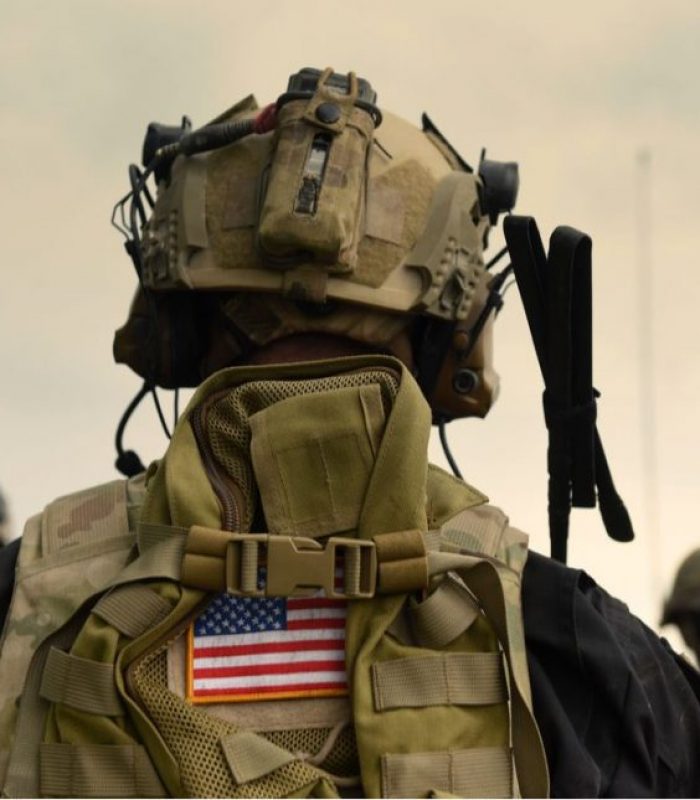VA cannabis policy still weak on allowing veterans to access medical cannabis, even in legal states.
Increased legalization in the United States is leading to easier access to cannabis, and this is especially important to veteran populations. Cannabis could be a safer (and more successful) option to treat combat related trauma. Traditionally prescribed medications are at high risk for habituation and addiction. Will the VA cannabis policy officially recognize this medicine?
As we start 2022, medical cannabis is still a gray area in VA healthcare. Of course, veterans may talk to their VA doctor about cannabis use, without fear of reprisal. But many veterans still fear repercussions because their medicine of choice is illegal on the federal level. For VA physicians, things are definitely frustrating – while no one is legislating a conversation with a patient, neither are they allowed to prescribe medical cannabis.
According to an article published in Marijuana Moment (November, 2021), the VA Secretary, Denis McDonough, is ‘”looking” into the possibility of an internal policy change’ following a moving meeting with several vets that benefit from medical cannabis.

Veterans are Trying Cannabis with Good Results
A preliminary research study found that among the veteran population consuming cannabis with a prescription:
1. 42% decrease in use of opiates three months after starting cannabis treatment;
2. 41% of patients substituting alcohol for cannabis.
This harm reduction has the added benefit of improved symptom relief. There were also less reported trips to the emergency room and primary care clinics. In addition, the study found that 68% of veteran cannabis patients were substituting cannabis for their prescription medications.
Some believe the recreational population, while still deriving benefit from cannabis consumption, do not experience the same health crises as those seeking prescription cannabis. MC consumers reportedly struggle with health issues including (but not limited to): PTSD, sleep disturbances, chronic pain.
PTSD is a qualifying condition for access to medical cannabis and this lessens the burden on the veterans as this population must follow VA (Veteran’s Affairs) guidelines surrounding “substance abuse.” Accessing cannabis without a prescription may compromise VA benefits. Sadly, even though 62% of veterans qualify for access, only 24% will apply for a medical cannabis registration card, due to the fear of losing these benefits.
Does Cannabis Work for PTSD?
Previous research shows that cannabis has the potential to relieve the symptoms of PTSD, especially those related to sleep and nightmares. Supporting this fact are pharmacological studies that show the endocannabinoid system as a potential target for cannabis treatment; researchers have even found site of action that protects against the PTSD related problems.
Further research is required to determine if cannabis self-treatment targets the pathophysiology of the PTSD or if it is merely managing related symptoms. This would be very significantly help a disabling condition haunting many veterans.

What is VA Cannabis Policy?
The quality of life after combat in this population needs immediate attention. It should concern VA officials as much as medical professionals trying to improve it. Veterans should have access to the medical care required to treat conditions developed during and after combat. And they deserve access to choice in medical treatment.
One key limitation for these studies is the self-reporting nature, which can create bias. The veterans ‘self-classified’ as medicinal or recreational cannabis users. It is unknown if the medicinal consumers were once recreational, but now hold a prescription or state-issued medical cannabis card. There are also inherent discrepancies in access to high quality cannabis, which will skew reported symptom relief. Additionally, those with a prescription can more easily access cannabis with higher cannabidiol (CBD), a key cannabinoid in the treatment of PTSD.
From the U.S. Department of Veterans Affairs site: The VA “is required to follow all federal laws including those regarding marijuana. As long as the Food and Drug Administration classifies marijuana as Schedule One VA health care providers may not recommend it or assist Veterans to obtain it.”
The VA also explains that veterans will not lose benefits if they use cannabis. However, a VA clinician will not assist them in accessing this medicine. It’s a compromise of sorts but not good enough by a long shot. Veterans deserve comprehensive care with their VA clinician without fear of reprisal or loss of benefits.



Denis G. Cowles
I won’t get a cannabis card until I can still own a firearm as well, I’m NOT about losing my 2nd amendment rights because the federal government won’t budge on making cannabis legal. This Herb is NOT alcohol.
Mr. Hawai'i
I suffer serious injuries and severe chronic pain. I have a legal compassionate medical cannabis permit from the DOH in Hawai’i. I was recently fired from Hawaiian Electric where I worked as an IT professional. I sat at a computer; did not drive a company vehicle; did not operate heavy equipment; did not work with dangerous chemicals. I was simply a DBA — database administrator.
I did not medical before or during work — used only in the evening prior to bed to help me sleep. FIRED for being on a medication that has been legal in Hawai’i for 20 years. This is the corruption and insanity in our nation!